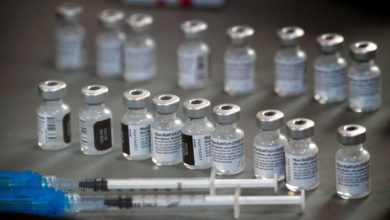
The United States will ship another package of arms to Ukraine, including long-range artillery ammunition used to devastating effect on Russian forces, according to a senior defense official.
The $775 million aid package includes ammunition for the High Mobility Artillery Rocket Systems, or HIMARS, which has been employed masterfully by Ukrainian forces, said the official, who spoke on condition of anonymity under guidelines set by the Pentagon. The rockets with a range of more than 40 miles have been used to destroy Russian command posts, ammunition depots and logistics hubs.
The Russian military advance, begun in February, has ground to halt. Ukrainian attacks are weakening Russian positions but have yet to retake territory, the official said.
The military aid package includes drones, conventional artillery ammunition and Mine Resistant Ambush Protected (MRAP) vehicles to protect Ukrainian troops from Russian roadside bombs, the official said.
The United States has provided $12.6 billion in military aid to Ukraine since 2014, more than $10 billion of it in the last year.
Latest developments:
►About 1,100 people in two villages in Russia's Belgorod region on Ukraine’s northeastern border were evacuated late Thursday after a fire at a munitions depot. There were no casualties, the Belgorod region’s governor, Vyacheslav Gladkov, said Friday.
►A Russian cargo ship Ukraine claims holds stolen wheat from territory seized by Russia appears to have reached Tartus, a Syrian port, according to satellite images analyzed by the Associated Press. Another ship recently docked in Syria with Ukrainian corn that was legally purchased as part of a United Nations effort to combat a global food crisis exacerbated by the war in Ukraine.
►No breakthroughs appear to have come out of Thursday's meeting among Ukrainian President Volodymyr Zelenskyy, U.N. Secretary-General António Guterres and Turkish President Recep Tayyip Erdogan, as the conflict with Russia approaches the six-month mark with no end in sight.
►Amid the tense international climate created by the war, Russia deployed warplanes carrying state-of-the-art hypersonic missiles to its Kaliningrad region, which is surrounded by two NATO countries, Poland and Lithuania.
Ukraine energy firm warns Russia may try to disconnect nuclear plant from electricity grid
Russia has ordered staff members at Europe's largest nuclear plant to stay home Friday amid mounting tensions over the possibility that military conflict near the plant may lead to a nuclear catastrophe.
Russia ordered the facility to limit personnel Friday to only those who operate the plant's power units, Ukraine’s state-run energy firm, Energoatom, said in a statement. The firm also said it has information that Russian forces plan to turn off the plant's power units and disconnect them from Ukraine's electricity grid.
Such a move would deprive the country of a major electricity source as the plant accounted for about half the electricity generated by nuclear power in Ukraine before the war.
Russian troops took over the Zaporizhzhia plant in southern Ukraine, one of the 10 largest nuclear plants in the world, shortly after invading the country in February. Ukraine and Russia have since accused each other of risking nuclear fallout by shelling the plant.
US 'deeply concerned' about Russia's control of nuclear power plant
Thursday, Ukrainian President Volodymyr Zelenskyy and U.N. head Antonio Guterres agreed on the terms of a trip by the International Atomic Energy Agency to the Zaporizhzhia nuclear power plant, according to the presidential website.
The U.S. is "deeply concerned" about Russia's continued control of the plant, State Department spokesperson Ned Price said, calling for the IAEA to be allowed to monitor the safety and security of the plant. But it's not certain the Kremlin will accede to a visit from the IAEA.
Ivan Nechayev, a spokesman for the Russian foreign ministry, rejected a proposal to demilitarize the area around the plant, Reuters reported. Nechayev said during a briefing that Russian troops are ensuring the plant runs smoothly and the demilitarization proposals would make the facility "even more vulnerable."
UN chief says global food markets beginning to stabilize
During a Friday visit to the Ukrainian port city of Odesa, United Nations Secretary-General Antonio Guterres said there were "signs that global food markets are beginning to stabilize" after a U.N.-led agreement to facilitate the transport of Ukrainian grain.
"Since the Russian invasion of Ukraine, I have been clear: There is no solution to the global food crisis without ensuring full global access to Ukraine’s food products and Russian food and fertilizers," Guterres said at a news conference.
Guterres said more than 560,000 metrics tons of grain and other Ukrainian foodstuffs are being transported to global markets, adding that wheat prices have dropped by as much as 8% after the U.N. agreement. Still, he warned that supply chains are still disrupted and food prices remain "very high."
Russian strikes claim casualties near Kharkiv
Russian missile strikes that began Wednesday night and continued Thursday morning in and around the northeastern city of Kharkiv killed at least 17 and wounded 42, Ukrainian authorities said.
A dormitory housing deaf Ukrainians was destroyed in the attack. President Volodymyr Zelenskyy called the assault "despicable and cynical."
Russia’s military also claimed that it struck a base for foreign mercenaries in Kharkiv, killing 90, though Ukraine did not immediately confirm.
Meanwhile, on Russian soil near Ukraine's border, an ammunition dump caught fire in a village in the Belgorod region, the regional governor said. No casualties were reported.
Contributing: The Associated Press
Source link










